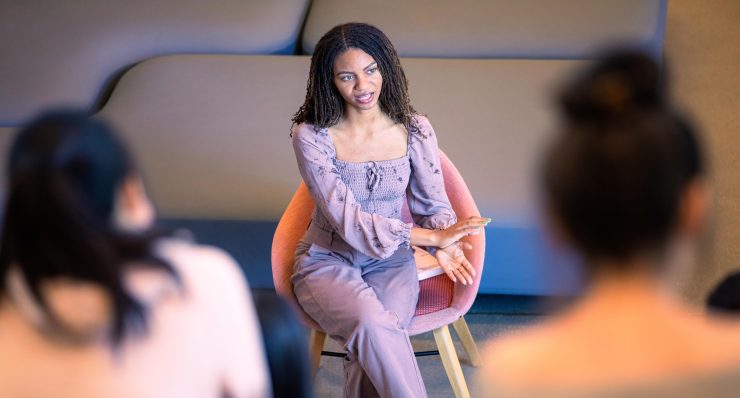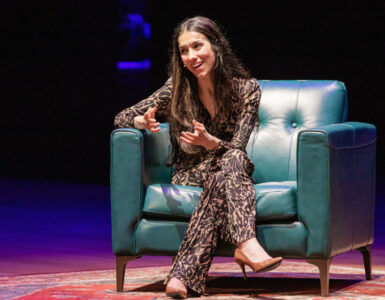When writer and activist Leah Thomas ’17 speaks to Chapman University students about her journey as an environmentalist, she could easily point to an abundance of milestones and achievements in her young career.
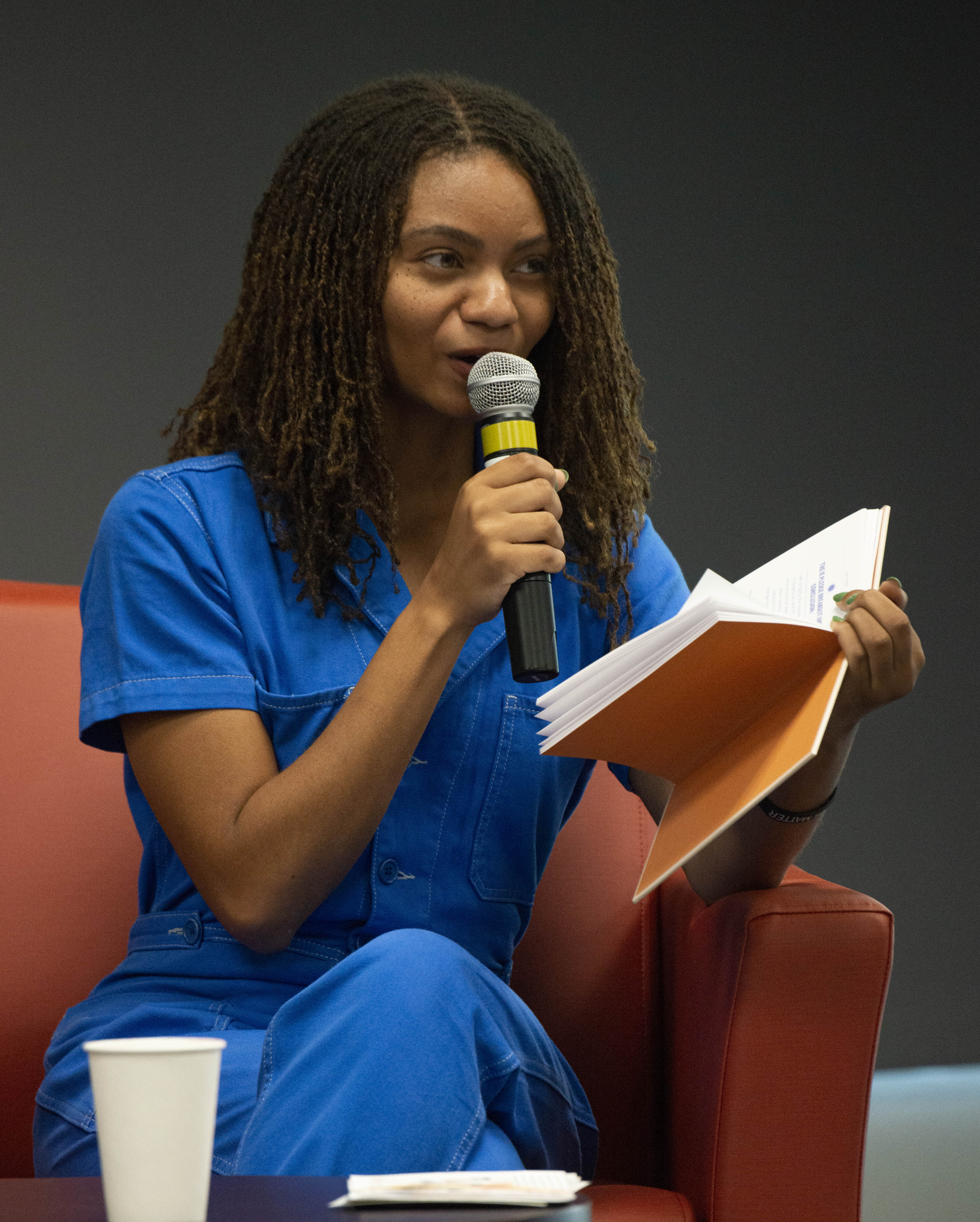
She could hold up her articles in publications like Vogue and Elle, or her climate diaries in The Washington Post. She could highlight her social media presence @greengirlleah, which has garnered hundreds of thousands of followers on Instagram. She could screen her 2021 Super Bowl ad with Lil Nas X, or point to her participation in the 2021 COP26 international climate conference in Glasgow, Scotland.
But as she sat down with Chapman Environmental Science and Policy students on a recent Friday, Thomas instead talked about how she felt as she strolled across the Chapman campus to join them on the McCardle Steps in the Keck Center for Science and Engineering.
She carried a feeling of confidence and a sense of community that had been elusive during her time as a Chapman student.
“I want all of you to have that feeling, because you are so powerful,” she said.
Thomas returns often to Chapman to help students find their path to empowerment. During her most recent two-day visit a week before Earth Day, she emphasized the need to lift up the voices of those too often left out of the conversation on issues of the environment and climate change.
Tapping the Power of Intersectional Activism
Her recently published book “The Intersectional Environmentalist: How to Dismantle Systems of Oppression to Protect People + Planet” highlights the contributions of advocates like Sophia Li, a climate writer whose work addresses ant-Asian racism, and Vanessa Nakate, a Black climate activist from Uganda.
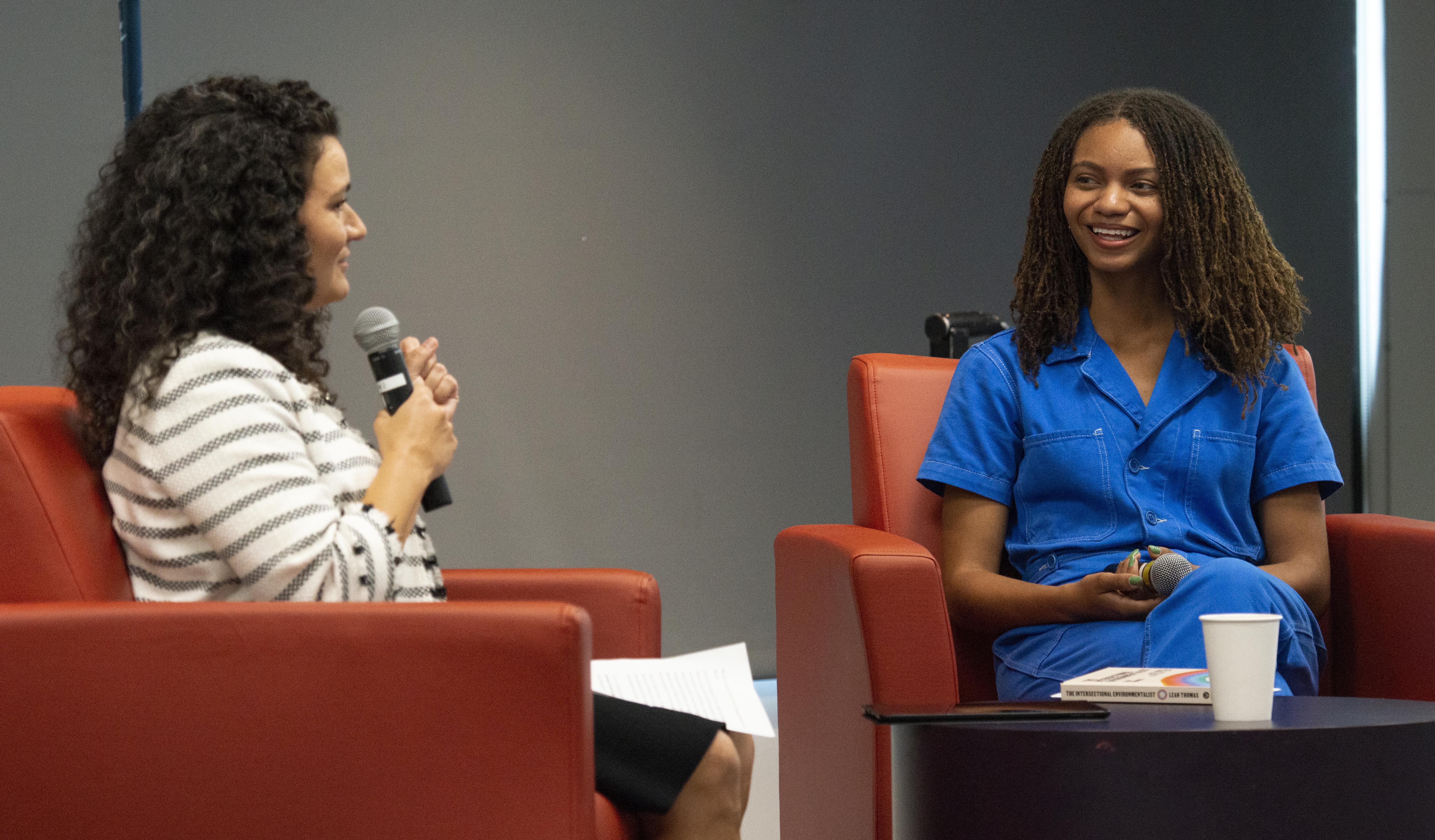
Along the way, Thomas also shared stories of her own circuitous journey to tapping her power as a woman activist of color.
“I sort of stumbled into the world of environmentalism,” Thomas admits in one of her Washington Post diary entries. “I thought I wanted to be a veterinarian initially because I’ve always been fascinated by animals, but I started to gravitate toward ecosystems ecology and sustainability.”
Thomas grew up in Missouri, where in summer 2014 Black teenager Michael Brown was shot and killed by a white police officer in the town of Ferguson. The killing ignited unrest and helped prompt the Black Lives Matter movement.
“Two weeks later, I got on a plane to begin my studies as an environmental science and policy student,” Thomas recalled during a “Fireside Chat” with Chapman students in Beckman Hall’s George Bush Conference Center. The event was co-sponsored by Wilkinson College of Arts, Humanities, and Social Sciences as part of its series Engaging the World: Leading the Conversation on Environmental Justice.
“It was hard for me to focus in those introductory classes,” Thomas added. “How could I talk about the Clean Air Act when there were people in my community back home who were not even granted the ability to breathe?”
Thomas decided she didn’t want to take part in a type of environmentalism “that didn’t advocate for my people and so many oppressed people worldwide,” she says.
Founding a New Platform for Environmental Advocacy
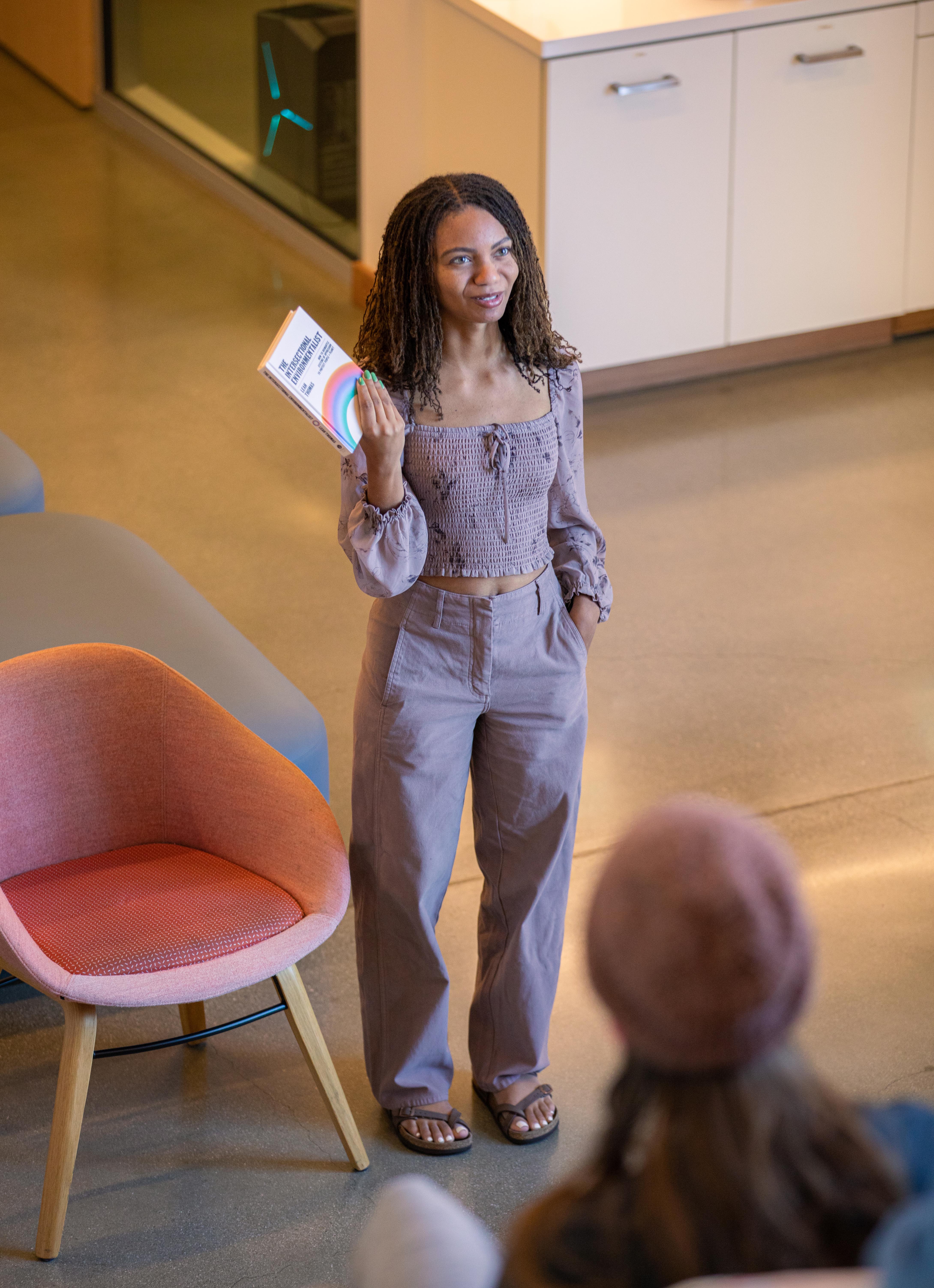
As she pursued her Chapman studies and then a career, she sought out ways to advocate at the intersections of environment and race, environment and feminism, environment and justice.
When COVID-19 hit the U.S. in 2020, Thomas was furloughed from her marketing communications job at Patagonia. It was a setback she flipped into an opportunity.
“I was on unemployment for the first time in my life, and I felt like I had nothing to lose,” she says. “I’m a relatively shy and reserved person, but I had a moment of people actually listening to me, and it felt so good. I started thinking: What if people could also feel this good having their voices heard within the context of environmentalism or any movement?”
So she founded a climate justice collective called Intersectional Environmentalist, “imagining a more equitable + diverse future of environmentalism,” as it says on the IE website.
“I think it’s kind of a thing that happens when the shy girl is finally listened to and they just can’t stop talking,” Thomas says with a smile. “I haven’t stopped talking since.”
Along with her messages of urgency for climate action and dismantling systems of oppression, Thomas includes one of the need for self-care in the intersectional environmental movement.
“Taking care of yourself is also a radical and revolutionary act,” she says. “We’re living on a burning planet, but being joyful in the world is a way to say, ‘No matter what systems are at play, my smile is something you can’t take away from me.'”
Thomas is using her voice to open doors to cultural change – in educational systems, corporations and beyond.And people are listening, including at Chapman.
“I’m stoked that there’s now an eco-feminism class here,” she says.
Across higher education, she advocates that environmental justice courses be required for environmental science students. And she’s glad to see that people are now exploring the possibilities of intersectional study in other disciplines, like health care and economics.
“This is growing in ways outside of what I even imagined,” she says.
Thomas knows well that systems of exclusion and oppression are slow to change. That reality was reinforced by her participation in the COP26 climate conference, where she was disappointed to see so little tangible progress made.
But that disappointment is no match for the powerful feeling that comes from bringing more people into the process, she adds.
“Overall, I know that conferences won’t save us, especially if there are no binding treaties,” she says. “But the power of organizing together? I believe that can change the world.”
